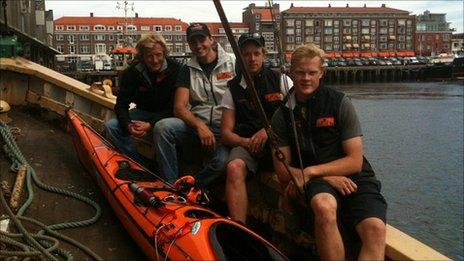World War Two: The brothers who fled Nazi occupation by kayak
- Published
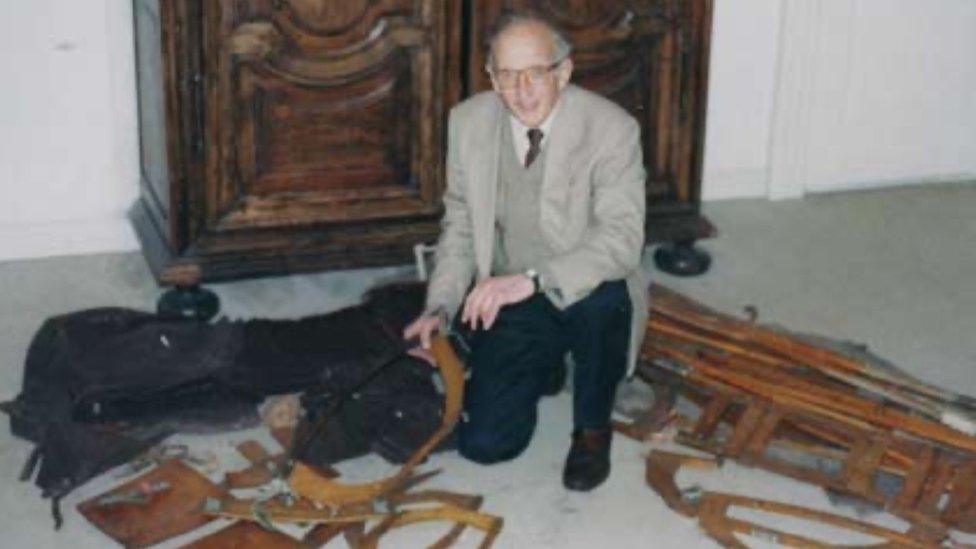
A keen university rower, a 22-year-old Henri Peteri had heard of fellow Dutchmen trying to escape to the UK by fishing boat
Whenever Niels Peteri visits a beach, he thinks of his father, Henri. He was one of the "Engelandvaarders" who, on 21 September 1941, stepped back upon land having paddled across the North Sea from the Nazi-occupied Netherlands to join the UK's war effort.
Niels Peteri was a teenager when he first learned of his father's dangerous 56-hour voyage across the North Sea.
Like most of his generation, Henri Peteri spoke little about World War Two or his role in it.
Eighty years on from the crossing, Niels remembers how he was told the whole story in one go. It was, he says, a story of inauspicious beginnings, brotherhood and incredible bravery.

'He thought today was the day'
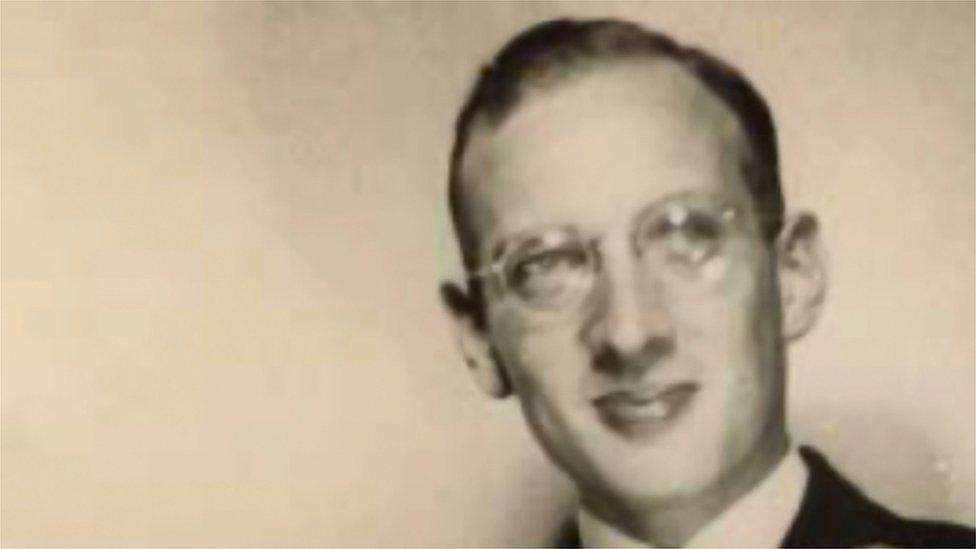
Henri was the last survivor of the Engelandvaarders He died in 2007
A keen university rower, the 22-year-old Henri Peteri had heard of fellow Dutchmen trying to escape to the UK by fishing boat.
He also knew that many had either been caught before reaching the coast or killed when Nazi coastal patrols sank their vessels.
But he had also heard of people managing to reach the UK from Scandinavian countries by canoe.
Might he too, he wondered, cross the North Sea in a craft far smaller than a fishing boat?
Henri talked his brother Willem into taking a chance.
He bought a folding German-made kayak in the Dutch port city of Rotterdam before the pair made their way to a guest house in the village of Katwijk, a village the brothers knew well because they had holidayed there previously.
As night fell, the brothers began putting the kayak together.

Who were the Engelandvaarders?
More than 2,000 men and women arrived in the UK from the Netherlands during World War Two - of which about 1,700 made the journey by sea.
Many others drowned at sea or were arrested, imprisoned or shot while preparing to leave.
Many of those who made the journey enlisted in the British or Dutch armed forces, the merchant navy or went to work for the government.
More than 100 Engelandvaarders - the word translates as "England-farers" - went back to the Nazi-occupied country as secret agents. Nearly half were caught.

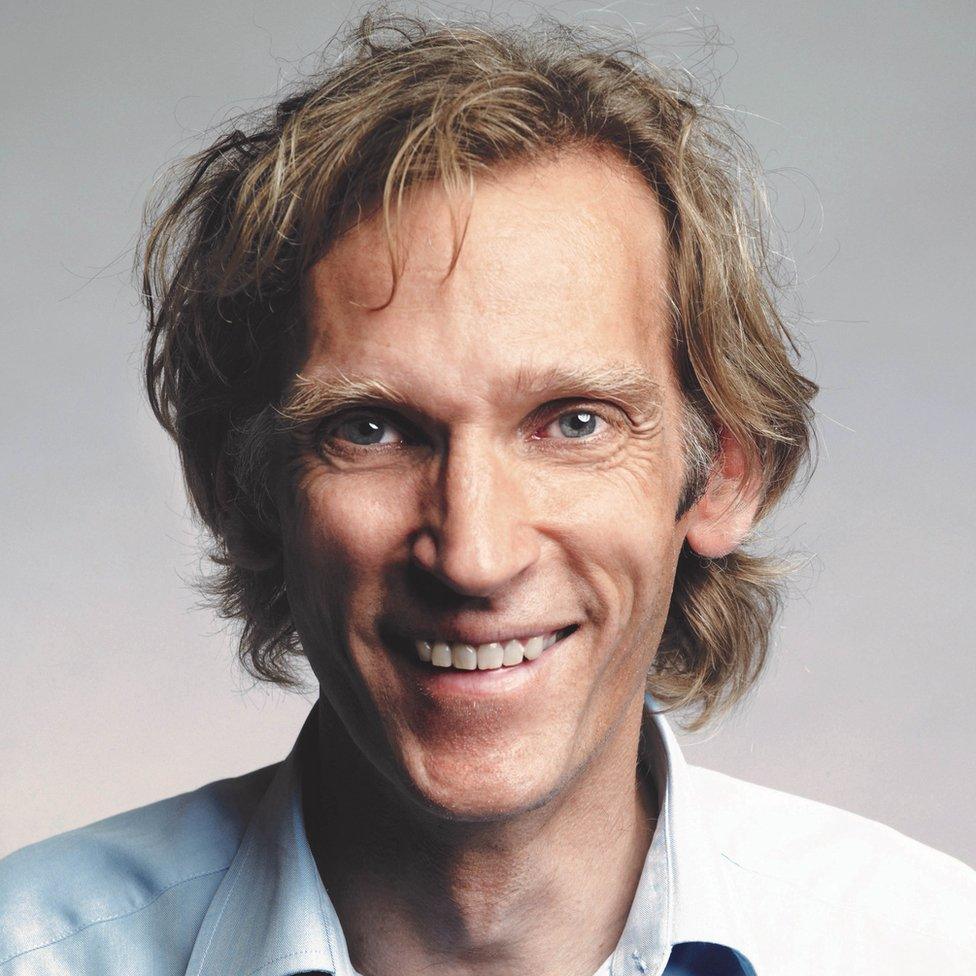
Niels Peteri remembers his father's epic journey every time he visits a beach
"My father looked out of the window and thought today was the day," says Niels.
"He did not want the nights to be getting shorter and he thought this was the last chance; it was now or never."
But there was an unexpected problem, says Niels.
"Once they finished putting their kayak together they realised they had one part left over.
"So they took it apart and rebuilt it again from scratch. This time, all parts were correct and accounted for.
"There was an eastern wind and it was calm water. They went for it."
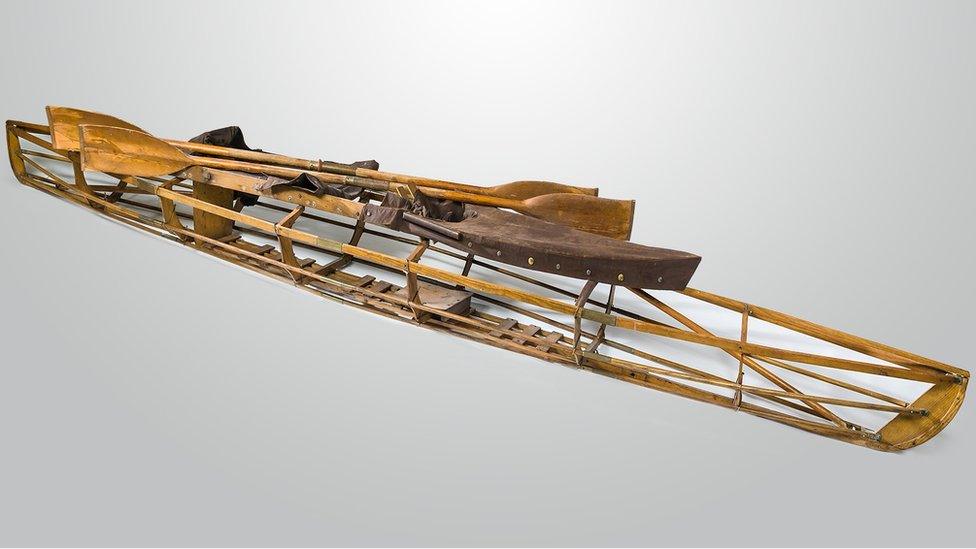
Henri Peteri bought his skin-on-frame folding kayak from a shop in Rotterdam. It was built in Germany
Actually, they went for it twice.
"When they departed from the Netherlands," says Niels, "they immediately capsized and lost one of their two compasses."
Despite this second setback, Henri convinced Willem to continue with the crossing.

'He shouted to the constable to ask if he could land here'
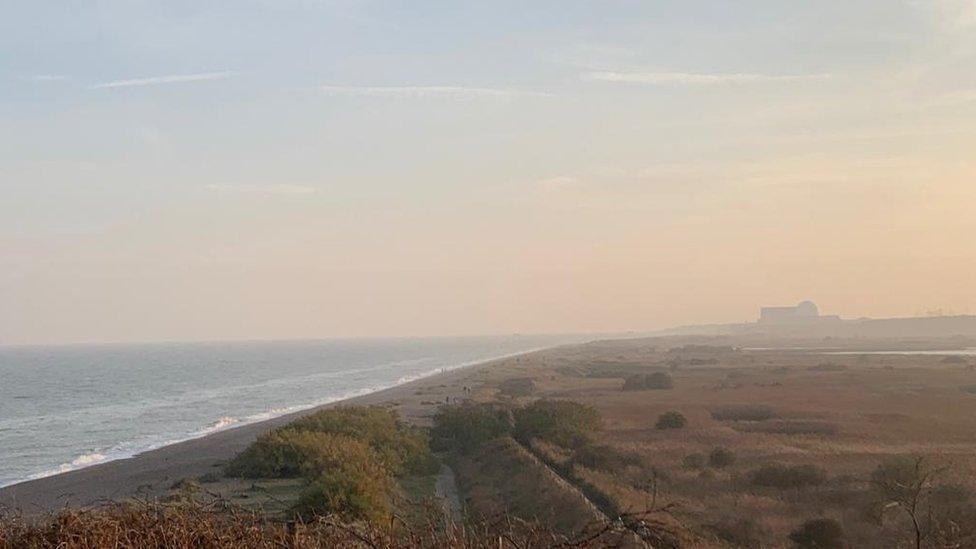
Fifty-six hours later, the brothers spotted a buoy in the water. On that buoy they read the word "Sizewell"
Fifty-six hours later, the brothers spotted a buoy in the water. On it they read the word "Sizewell", the name of a small village on the Suffolk coast. They knew at that point they had reached England, and continued to paddle along the coast.
"The first person they saw was a policeman in a uniform," says Niels.
"My father says he shouted to the constable to ask if he could land here."
On the one hand, Henri was being polite in asking permission. He was also wanted to check they were not about to step out of their craft on to a minefield.
"The constable said 'no problem' and they ended up in a police station in Leiston," says Niels.
Of the 32 men known to have tried to kayak from the Netherlands to England during the war, the Peteri brothers were among just eight who survived.
Of those eight, only three were still alive by the war's end.
Henri was the last survivor. He died in 2007.
"Whenever we go to a beach," says Niels, "I will think about his experiences.
"It is quite frightening to imagine doing that."

'He had a lot of luck'
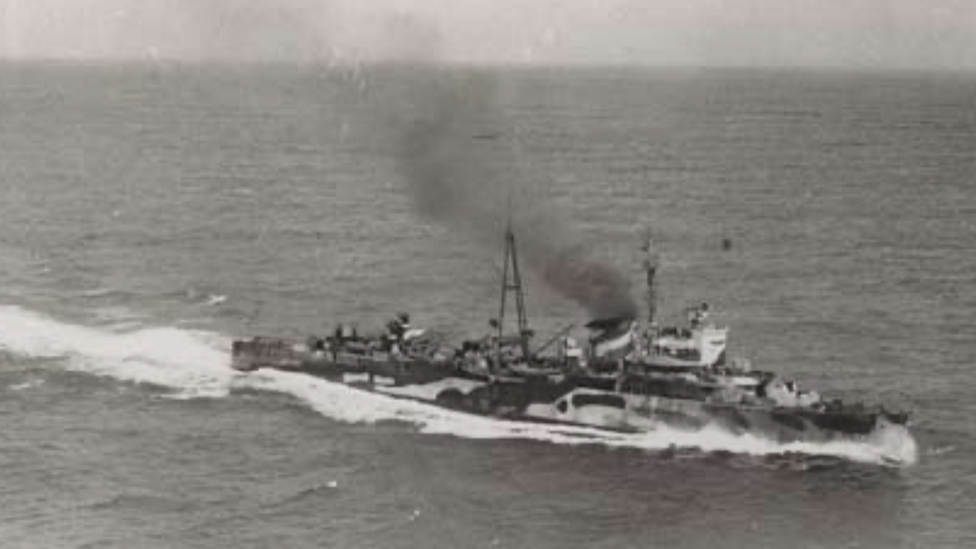
For the rest of the war Henri served as an officer aboard HNLMS Jacob van Heemskerck, which was tasked with protecting the merchant navy in both the Atlantic and Pacific oceans, as well as in the Mediterranean Sea
"He once told me he never felt as free as he did that first night in a British jail," says Niels.
Once screened and released by the British authorities, he was among a number of those who had successfully fled from the Netherlands to be received by the Dutch Queen Wilhelmina, who lived in London during the war and led the Dutch government in exile.
For the rest of the war, he served as an officer in the Dutch marines aboard HNLMS Jacob van Heemskerck, which was tasked with protecting merchant navy vessels in both the Atlantic and Pacific oceans, as well as in the Mediterranean Sea.
"He had a lot of luck," says Niels. "They had been under attack a lot and, due to engine problems, they missed the Battle of the Java Sea, where the whole Dutch fleet was destroyed by the Japanese."
Henri was twice decorated for his service during the war.
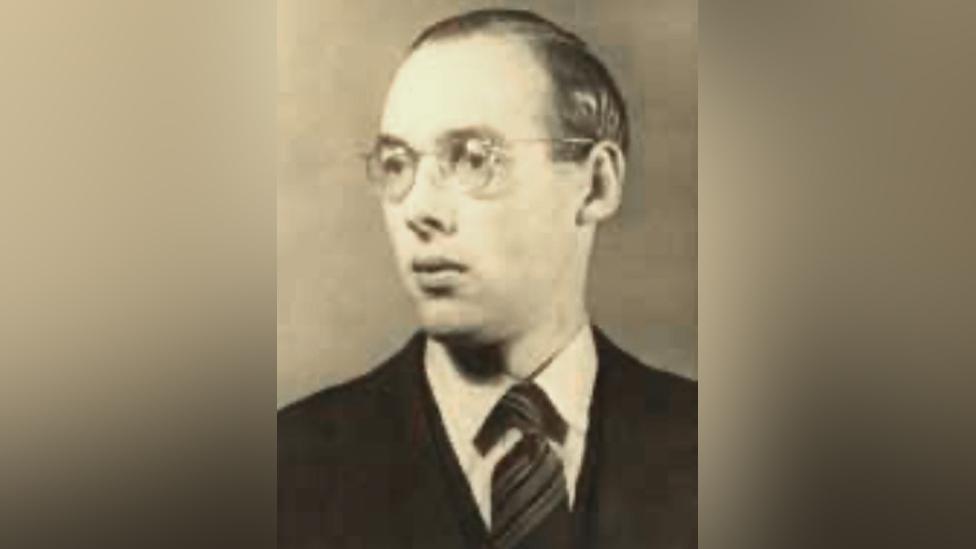
Willem was on a gunboat sunk by German fire but managed to survive
"My uncle Willem was less fortunate," says Niels.
Willem, whilst waiting to join the Royal Dutch Navy, spent one night on board a British motor gun boat off the Dutch coast when the vessel was sunk by German gunfire.
"On 3 October 1942, my father received a short telegram that read: 'The admiral regrets to announce that MGB 78 failed to return from an offensive patrol'.
"Henri thought he had lost his brother, either drowned or killed by the Germans," says Niels.
He says his father was especially worried for Willem because he was in civilian dress aboard the boat and would "therefore be treated as a spy".
Willem survived both the hail of bullets and the sinking. He washed ashore in the Dutch province of Zeeland.
Put on a transport to the German capital Berlin, Willem was kept in a death cell for three weeks before he was despatched to a German camp near Lübeck.
It was here that Willem spent the rest of the war.

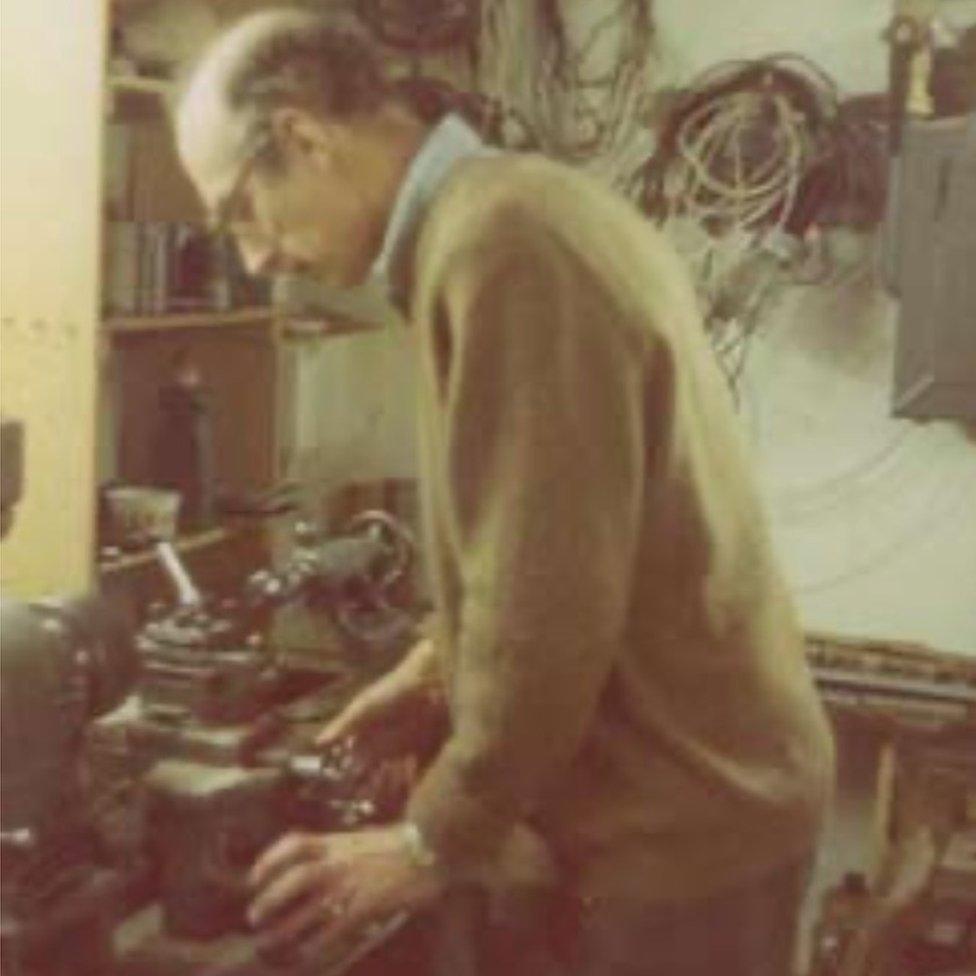
After a successful career with Unilever, Henri Peteri became an inventor
In 1946, Henri returned to the Netherlands and worked for Unilever until the 1970s when, as a father-of-six, he decided he was fed up with his corporate career and became an inventor.
His aim was to invent a device that gave people instant access to boiling water.
The 10-year-old Niels watched his father at work in the family basement and became increasingly interested in his father's project, creating a tap that supplied instant boiling water.
That project would many years later become Quooker.
The first Quooker (quick cooker) was ready for the market in 1992 and by 2000 had become a popular appliance in the Netherlands.
The company now produces 300,000 Quookers each year and has a network of more than 10.000 dealers and subsidiaries across Europe and in Asia.
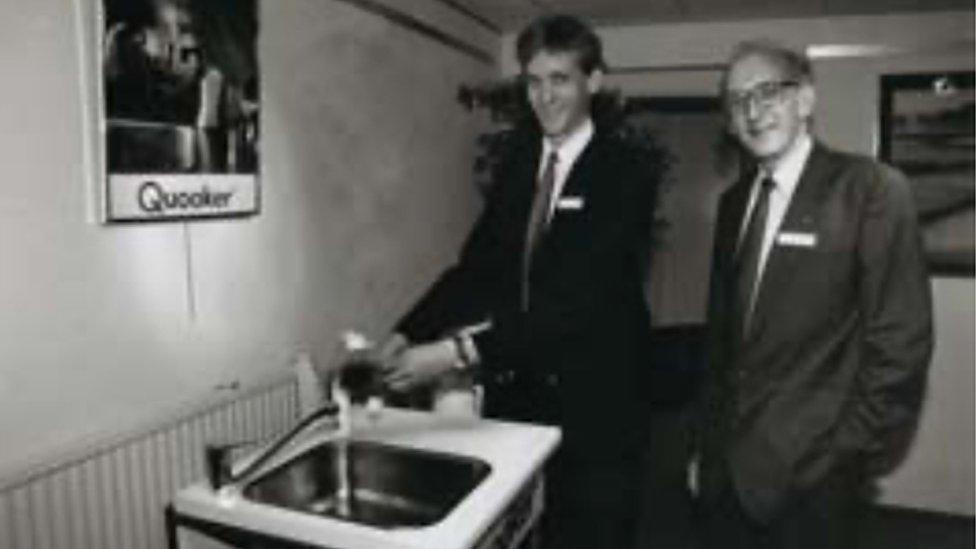
According to Niels, he, his father and brother Walter never once exchanged a harsh word with one another during their many years of working together
Asked what it was like working with his father, Niels says Henri always encouraged him to harness his "energy and talent".
According to Niels, the pair never once exchanged a harsh word during their many years of working together.
"My father said he felt our biggest achievement was that he, Niels and Walter [Niels' younger brother who joined them in 1993] never had any conflicts.
"My father was not only a courageous man, he was a remarkable man," he says.
The epic voyage undertaken 80 years ago continues to be remembered in the small Suffolk village in which the brothers landed.
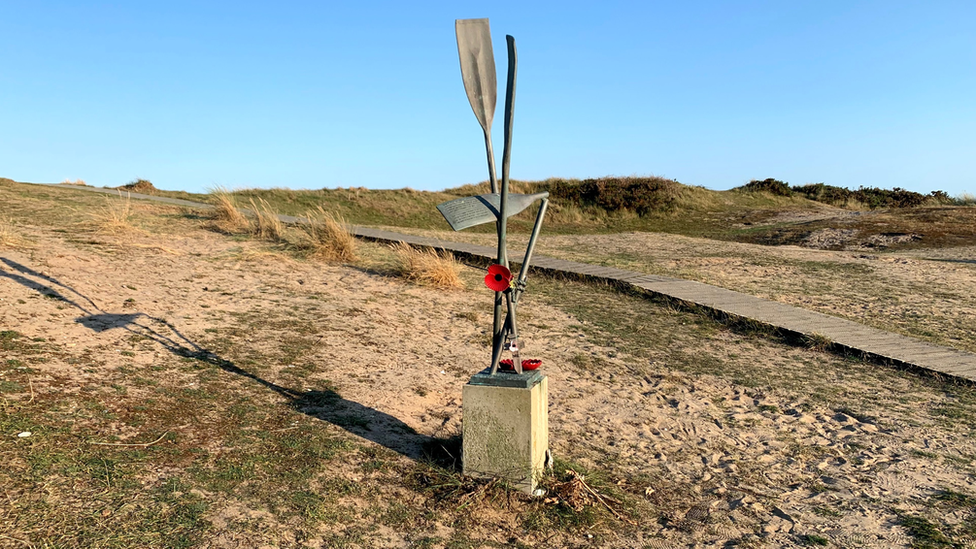
A small memorial stands at Sizewell, featuring three paddles
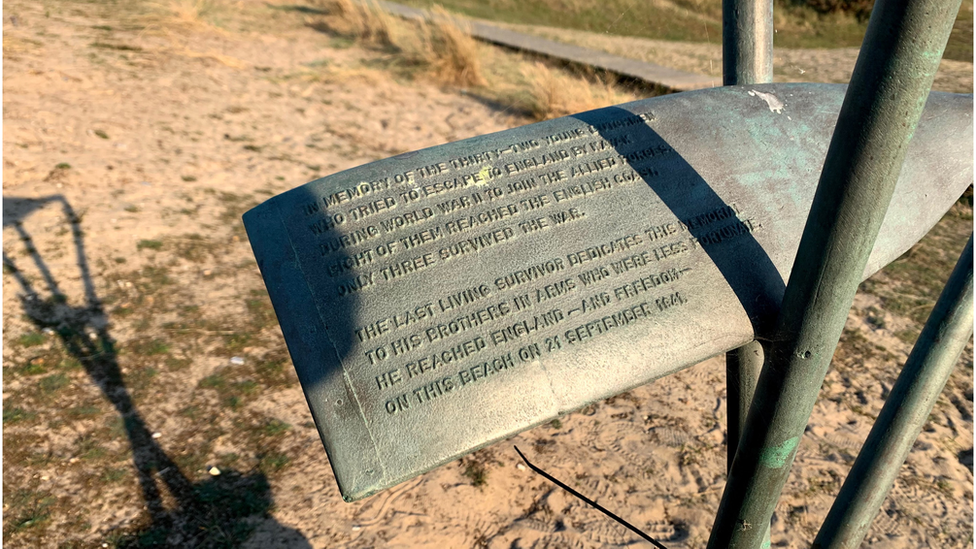
Two of the paddles commemorate the brothers while a third - broken - paddle is there to remember the many who did not survive the journey
There is a small monument featuring three paddles.
Two of the paddles commemorate the brothers. A third - broken - paddle, is there to remember the many who did not survive the journey.
"The paddles are castings of the ones used by Henri and Willem," says Niels.
"Not only are the paddles still there, but the whole kayak is exhibited in the company founded by Henri and myself many years later.
"The purpose is to keep the memory alive of those who made this attempt, no matter if they succeeded or not."
Related topics
- Published24 August 2011
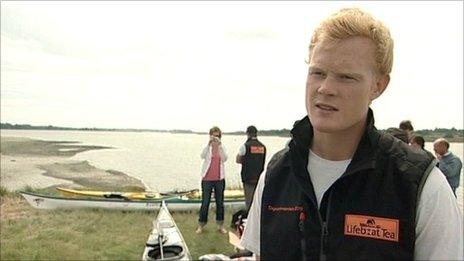
- Published22 August 2011
